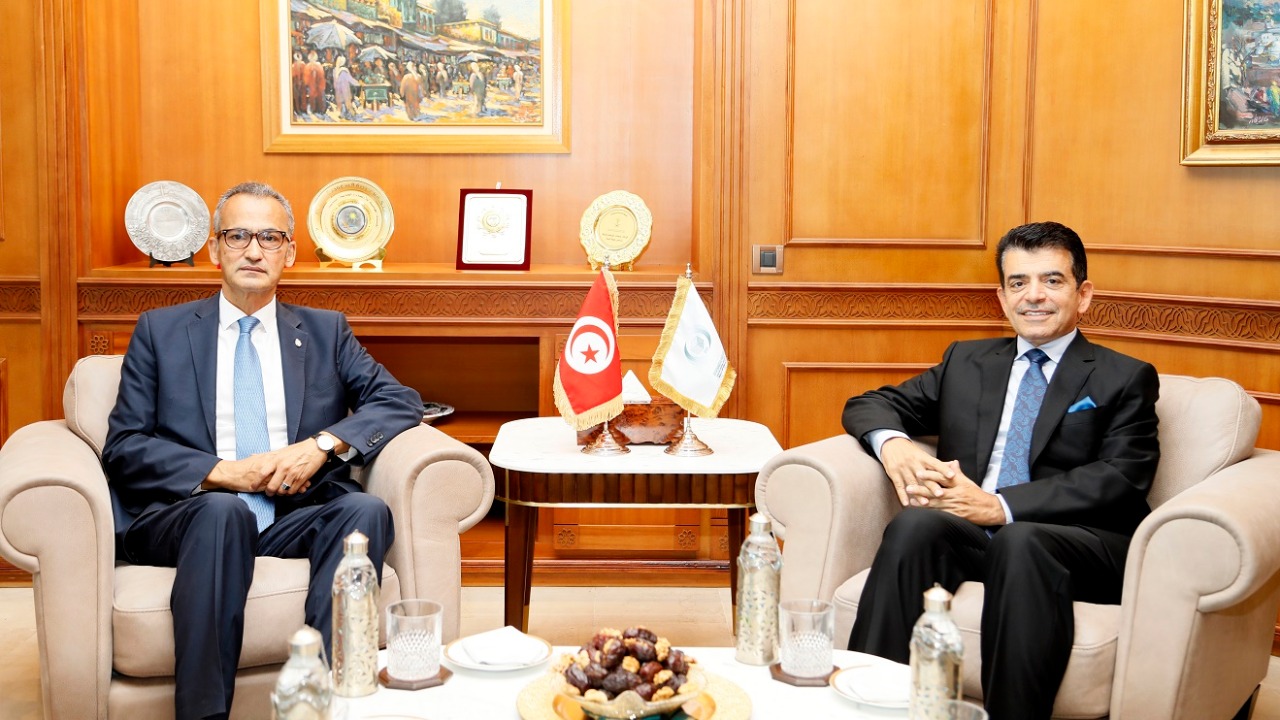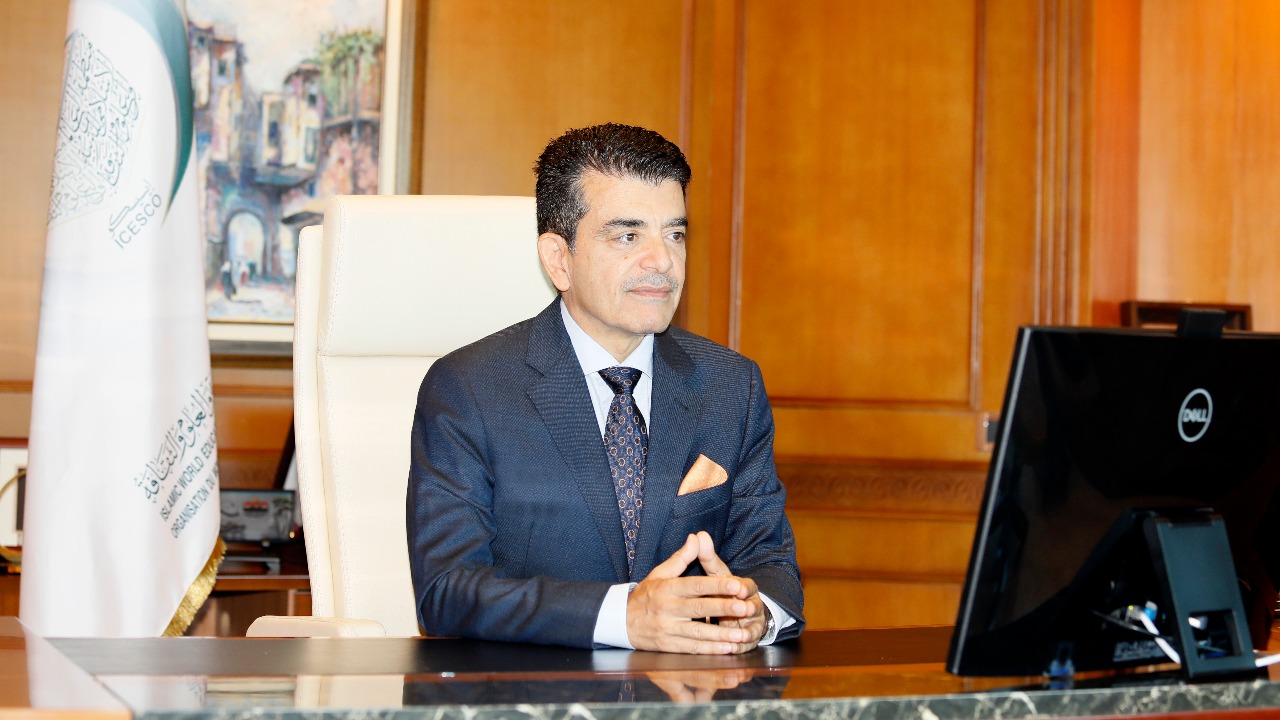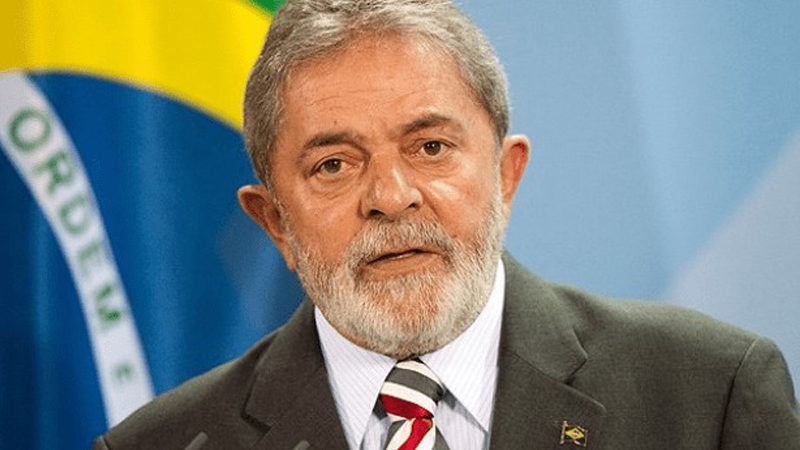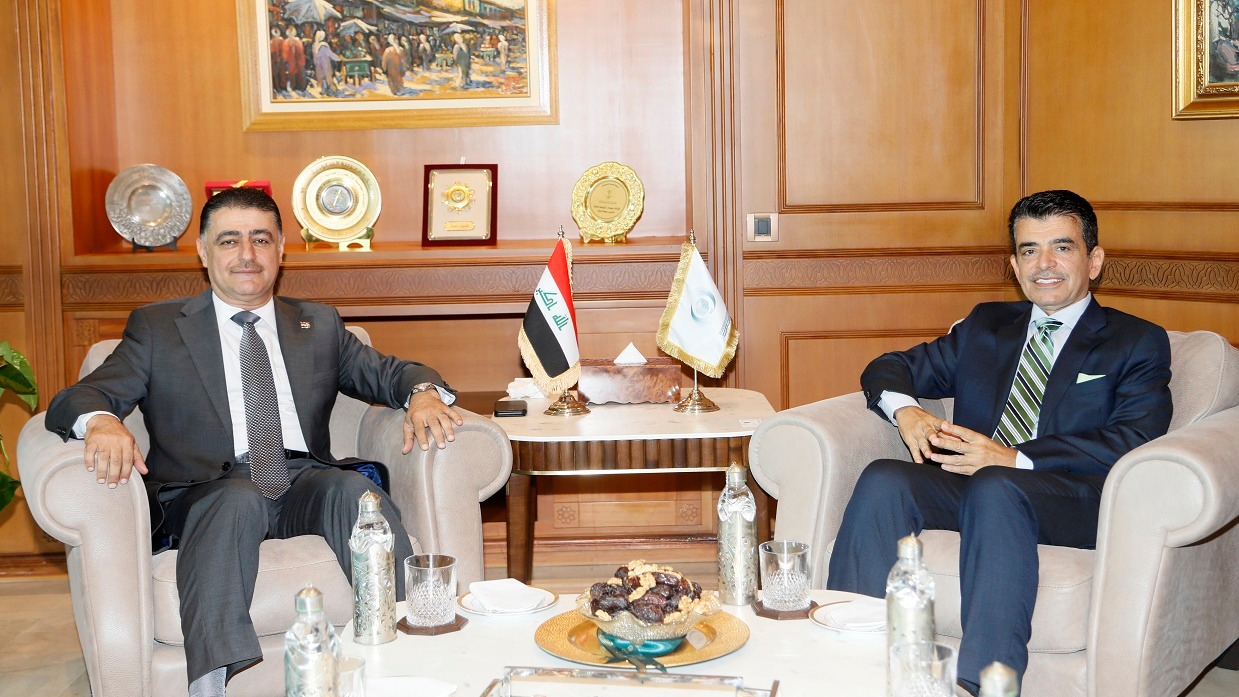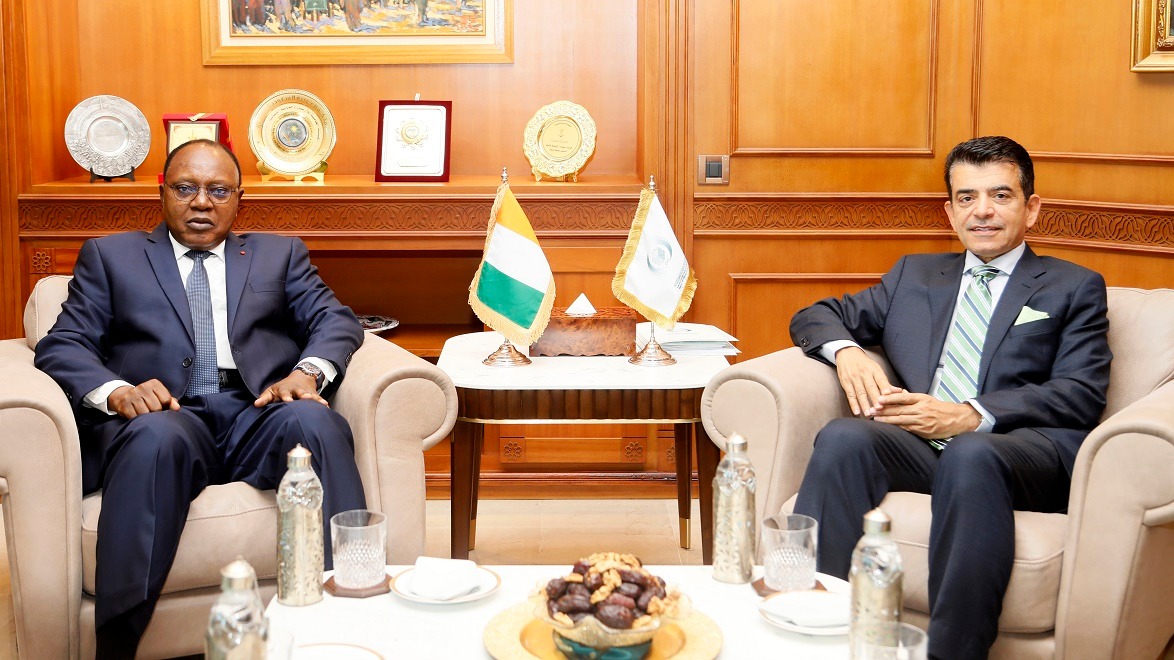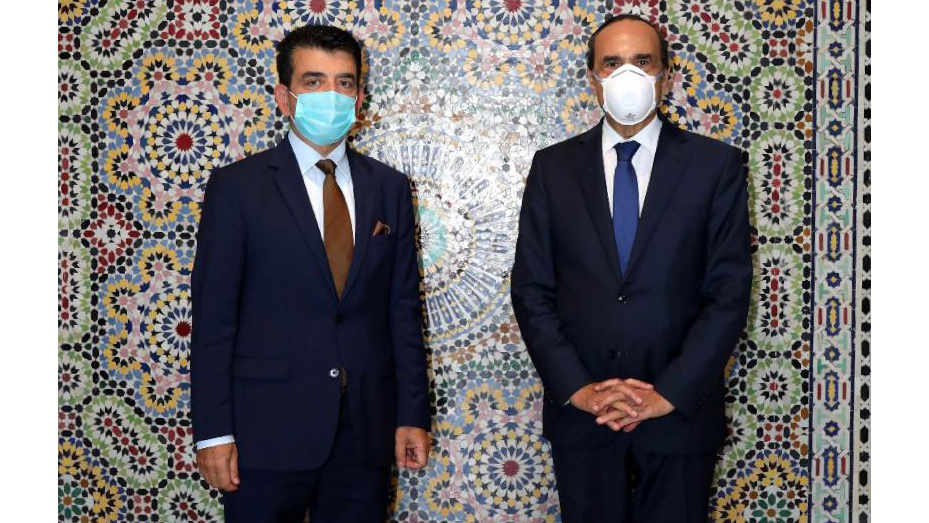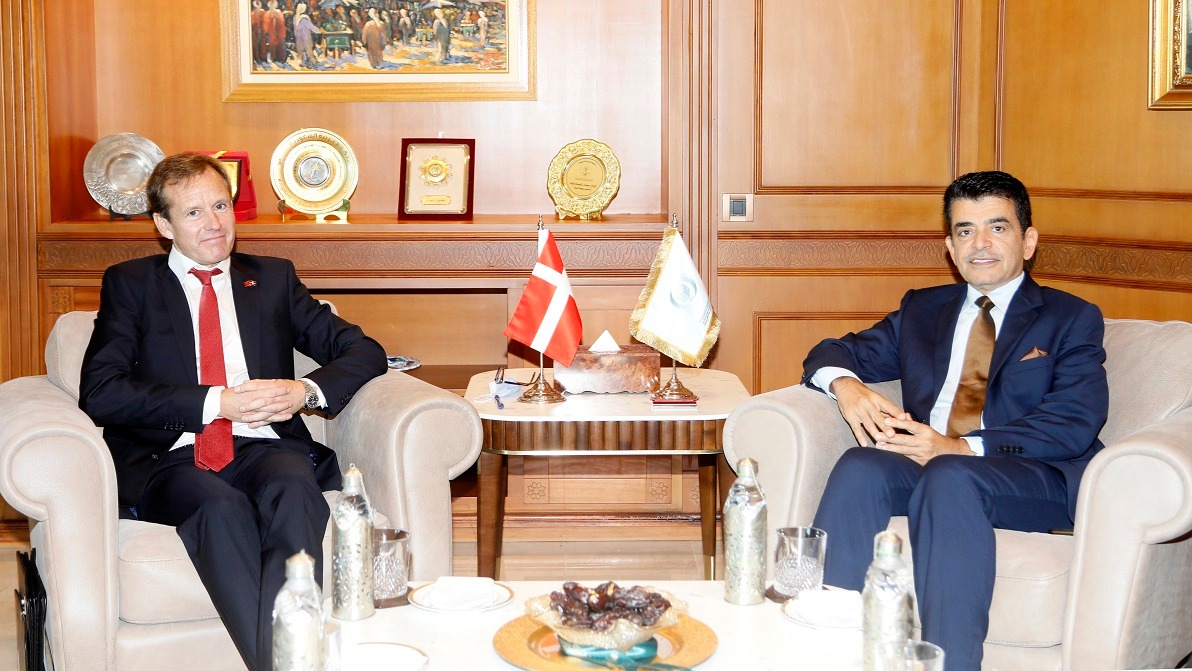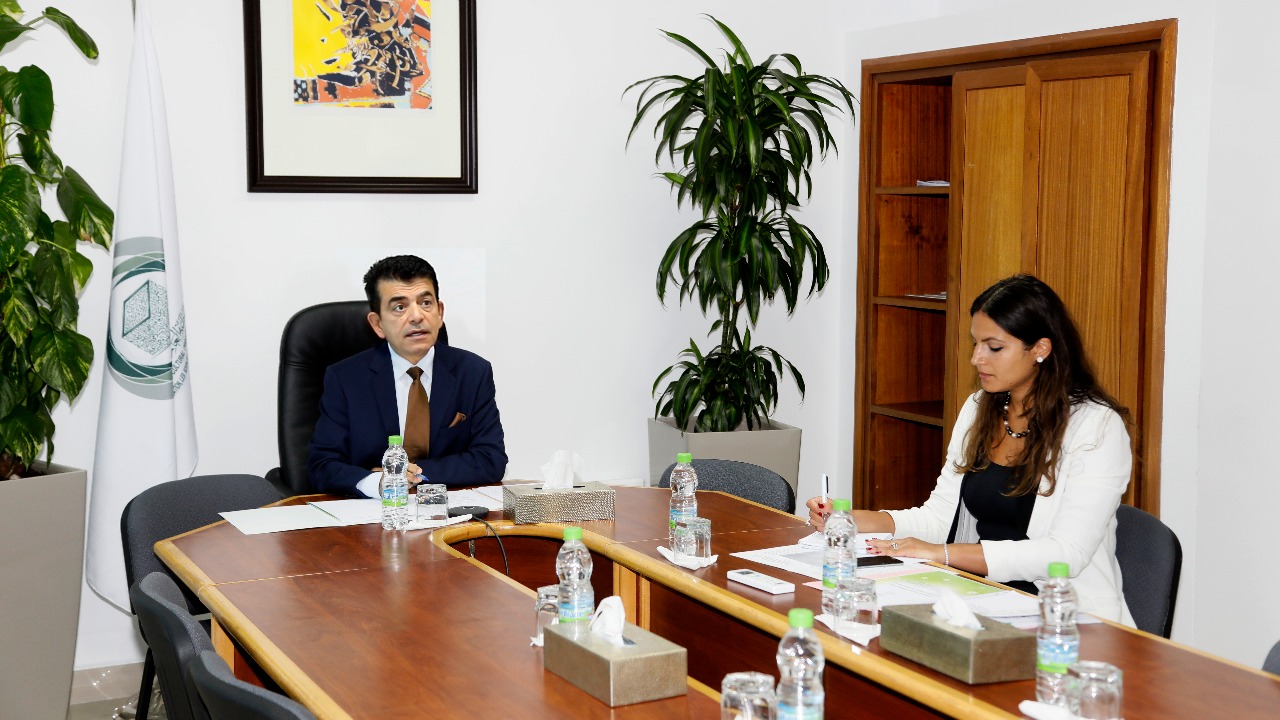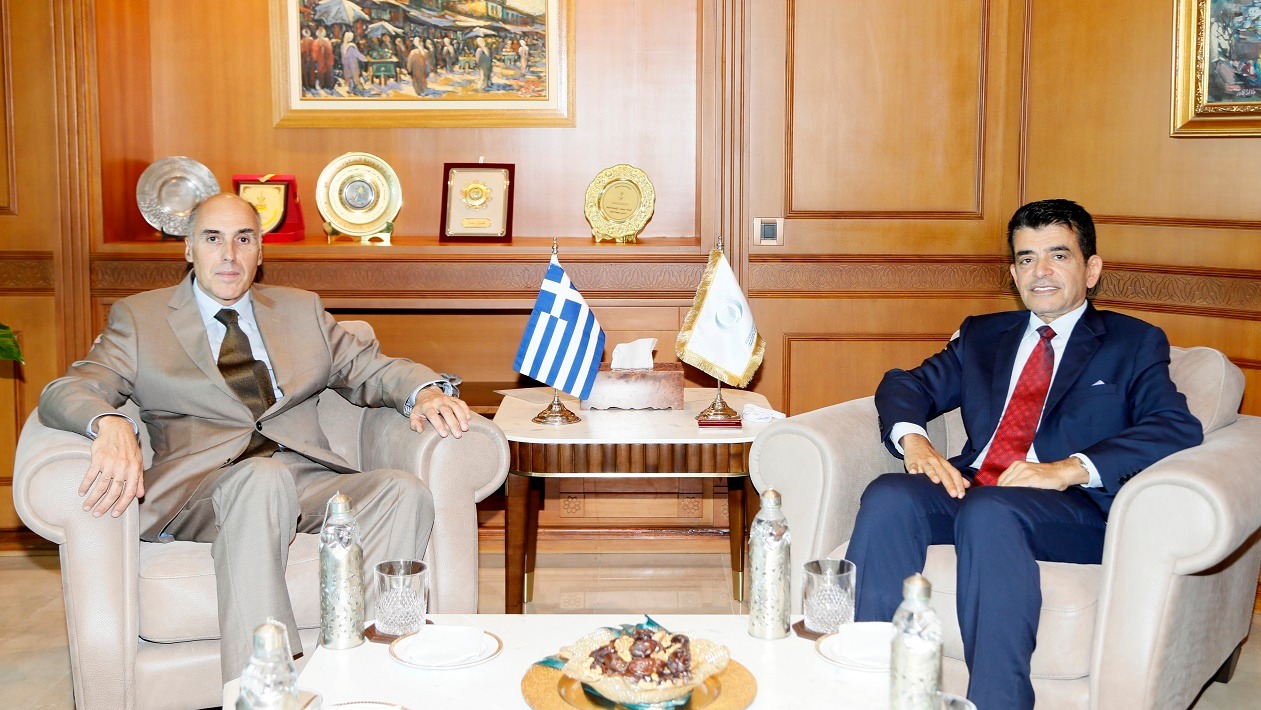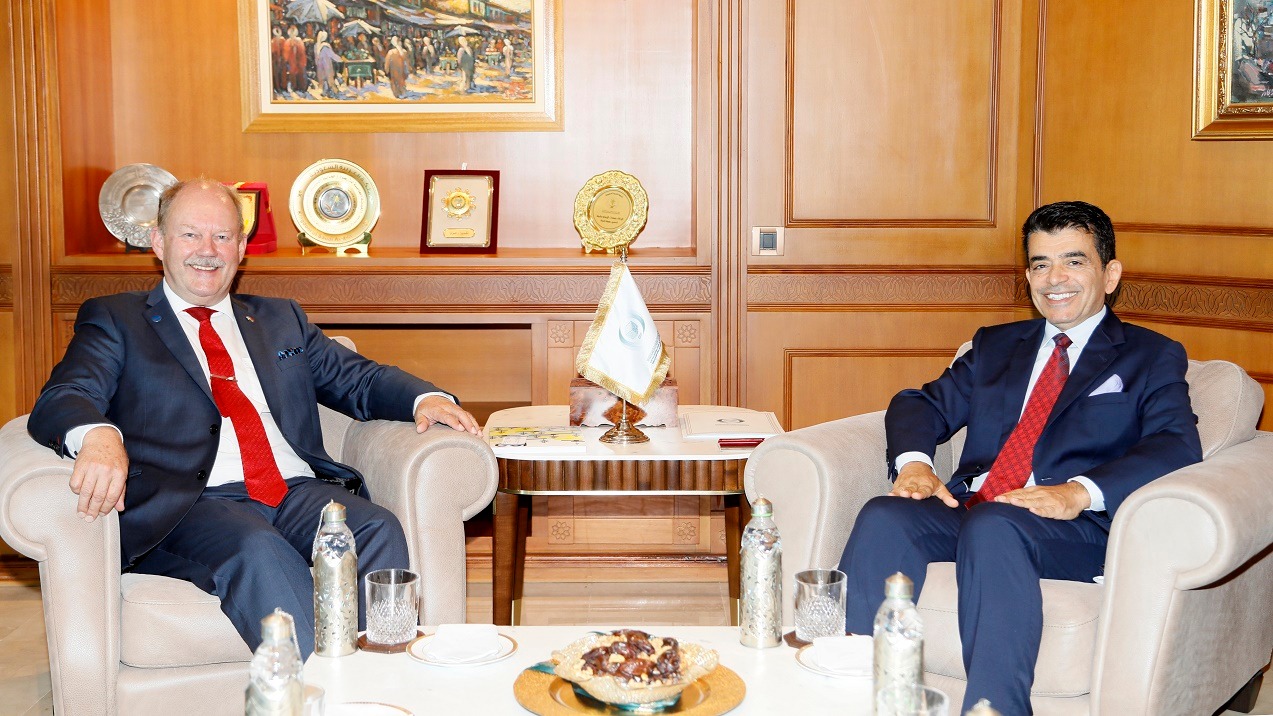Dr. Salim M. AlMalik, Director-General (DG) of the Islamic World Educational, Scientific, and Cultural Organization (ICESCO), received Mr. Mohamed Ben Ayed, Ambassador of Tunisia to Morocco. The September 25 meeting explored cooperation prospects between ICESCO and Tunisia in the fields of education, science, and culture.
Dr. AlMalik highlighted ICESCO’s main developments under its new vision and action strategy which promote an open-door policy with Member and non-Member States, international organizations, and civil society institutions. The goal is to build partnerships to benefit Muslim communities worldwide.
Dr. AlMalik reviewed ICESCO’s major initiatives, programs, and activities that counter the negative repercussions of the pandemic in education, science, and culture. ICESCO provided technological equipment and materials to 25 countries to sustain schooling and offered in-kind aid and preventive materials to 10 other countries.
The Organization also provided financial and technical assistance to produce best-cost sanitizer units and launched the “Comprehensive Humanitarian Coalition” Initiative. Many countries, international institutions, and donors joined the coalition, explained Dr. AlMalik as he called upon Tunisia to become a member.
The DG also highlighted that ICESCO established several specialized centers including, the Center for Strategic Foresight. The center is preparing four important studies on the future of the Islamic world, African countries, and cultural action, respectively, and AI challenges in the Muslim world, with the participation of renowned international experts. Another specialized center is the Arabic center for non-native Speakers.
ICESCO also established the Heritage Center, which has inscribed 200 historic sites in the Member States on the Islamic World Heritage List, including 17 sites in Tunisia such as Medina of Tunis, Djerba Island, Jewish Synagogue in Sousse, and Medina of Sfax.
Dr. AlMalik commended the instructive cooperation between ICESCO and Tunisia. One specific success is the “Celebration of Tunis as the Arab region’s Capital of Islamic Culture for 2019.” Culture Ministers from the Member States took part in the 11th Islamic Conference of Culture Ministers, held in Tunis last December. Dr. AlMalik also hailed the cooperation in the restoration of the house of Ibn Khaldoun in downtown Tunis.
Mr. Mohamed Ben Ayed commended ICESCO’s outstanding work and quality initiatives to support the Member States to counter the negative repercussions of the pandemic. He also stressed Tunisia’s keenness to promote constructive cooperation with the Organization.


